 2020/9/16 0:00:00
2020/9/16 0:00:00 2335
2335
On the morning of September 16, 2020, the 5th International Hydrogen Energy and Fuel Cell Vehicle Conference, co-hosted by the Chinese Society of Automotive Engineers and the International Hydrogen Energy and Fuel Cell Association (in preparation), is drawing to a close, but the enthusiasm of the audience has not diminished. The professional forum was still packed.
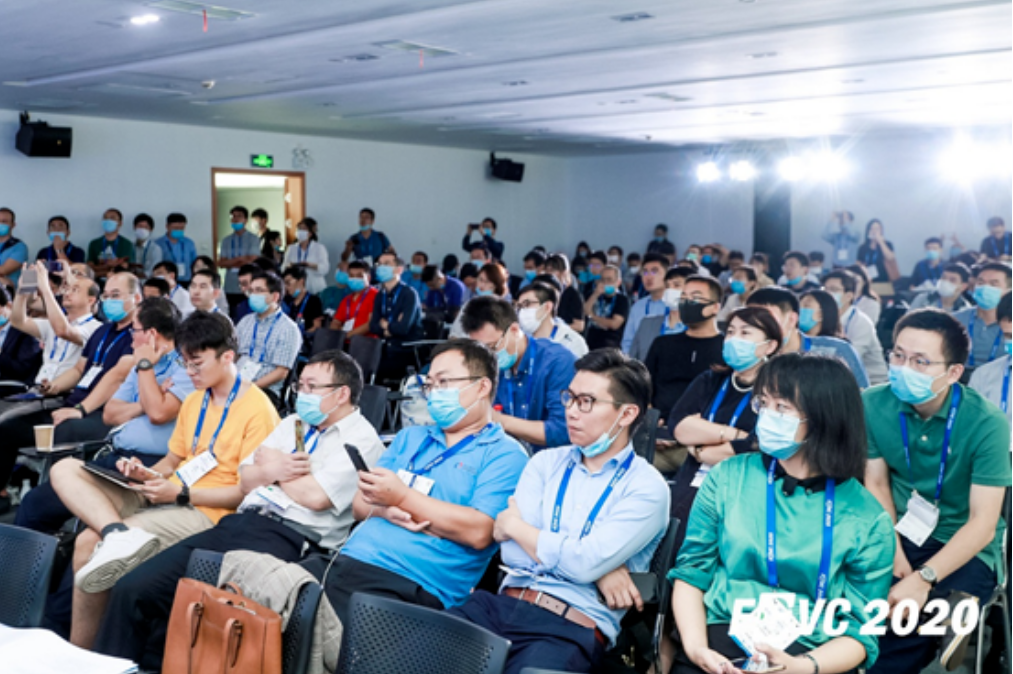
The theme of sub-venue 3 of the professional forum is: "Fuel Cells and Key Components". Below is an overview of the guest presentations:
Based on cutting-edge technology, bravely pioneering the fuel cell industry
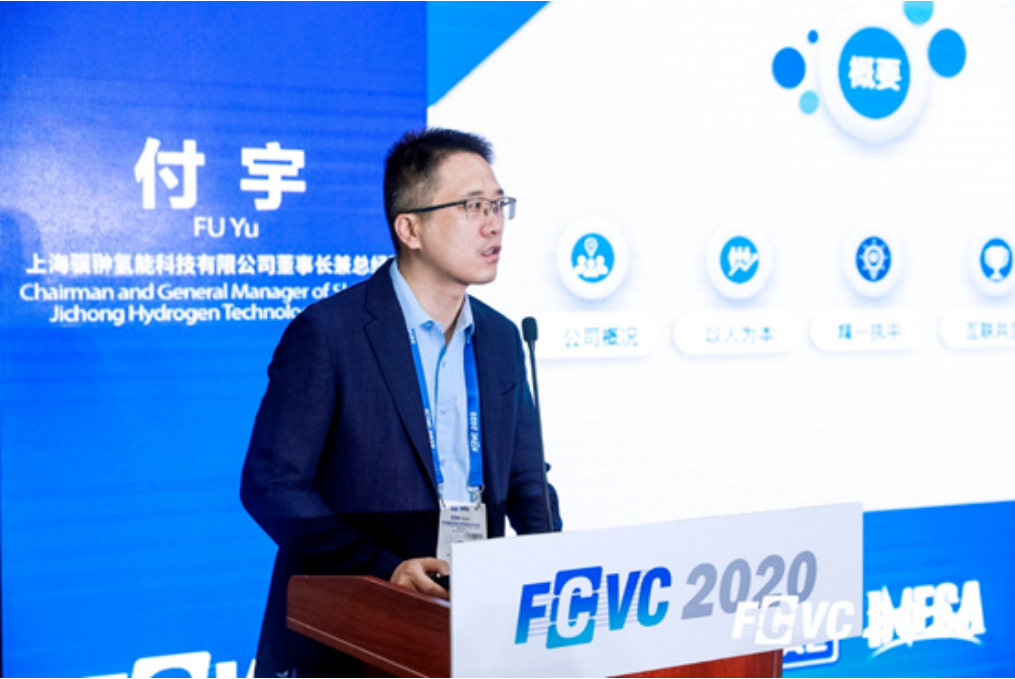
Fu Yu, Chairman and General Manager of Shanghai Ji Chong Hydrogen Energy Technology Co., Ltd.
Mr. Fu Yu introduced Ji Chong's positioning, team and core technology. He said that the advantage of Ji Chong is that it can be designed according to the actual mode of the stack at different stages, and the life and reliability of the stack can be guaranteed at the time of design. In terms of metal plates, Ji Chong has broken through the coating technology and developed a low-cost anti-corrosion conductive metal plate.
Integrated Solutions for Fuel Cell Systems

Bai Lisong, General Manager of Faurecia Green Mobility Zero Emission China / General Manager of Symbio China
Mr. Bai Lisong said that Faurecia already has some projects in operation or to be put into production in Symbio in Europe. Although there is a battery pack solution, it can cover everything from the stack to the entire system, and can meet different angles and power requirements. demand. Faurecia started to enter the Chinese market this year and will set up a research and development center.
Bridging the gap between fuel cell stack development and system integration in serial development projects for fuel cell vehicles

SimonFRASER, Global Project Manager Fuel Cell Test Systems, AVL Lister, Austria
Mr. Simon FRASER mainly introduced the integration of the tool chain. AVL is the world's largest company in the development, simulation and testing of power systems. It has established an advanced simulation department for FCV fuel cell vehicles. This department provides CFT and some simulation tools. Tools, based on which to design battery, stack, and powertrain simulation tools. The tool chain defined by Mr. SimonFRASER can not only help efficient development, but also promote efficient cooperation between different teams, and even between different companies.
Heraeus High Durability Proton Exchange Membrane Fuel Cell Anode Catalyst

Dong Weiwen, Head of R&D China, Precious Metals Division, Shanghai Heraeus Industrial Technology Materials Co., Ltd.
Ms. Dong Weiwen said that for high-durability anode catalysts, Heraeus hopes to meet the different needs of customers to the greatest extent through the following aspects: First, Heraeus has decades of rich production and service experience on precious metal supported catalysts , can provide customers with the most suitable solutions; the second point is that Heraeus' local active participation in R&D and production will help support local customers the most; finally, Heraeus hopes to provide customers with different needs. Customized products.
Mass production of metal bipolar plates in automotive fuel cell systems

Han Xu, Senior Engineer, Fuel Cell System, Schaeffler Trading (Shanghai) Co., Ltd.
Han Xu said that according to Schaeffler's internal forecast, if the metal bipolar plate can increase from 300,000 pieces in small batches to 40 million pieces per year, the cost reduction is very considerable, and Schaeffler expects it to reach 72%. decrease. He also said that Schaeffler will develop and mass-produce the core components of the fuel cell system through the standard production of conventional auto parts.
Guarantee safety and quality - escort the application of hydrogen energy and fuel cell technology
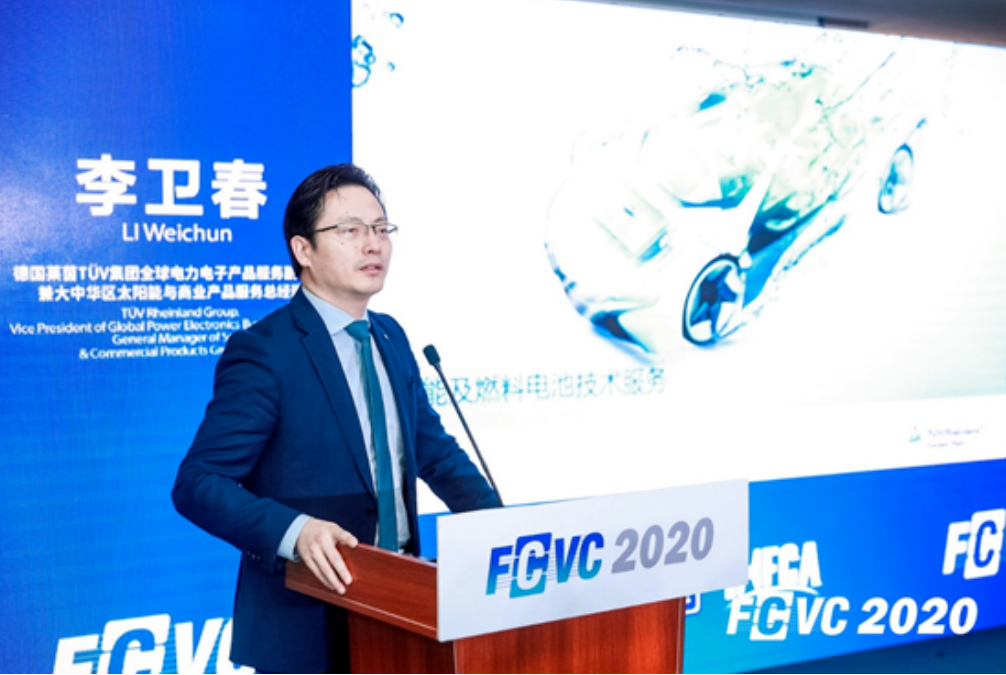
Li Weichun, Vice President of Global Power Electronics Products Services and General Manager of Solar and Commercial Products Services Greater China, TÜV Rheinland
Mr. Li Weichun said that TÜV Rheinland is a third-party testing and certification organization. The most important consideration for the group is how to focus on promoting services from the perspective of ensuring quality and safety. This is Rheinland's consistent pursuit.
Development Status of Type IV Hydrogen Storage Cylinders for Vehicles in my country
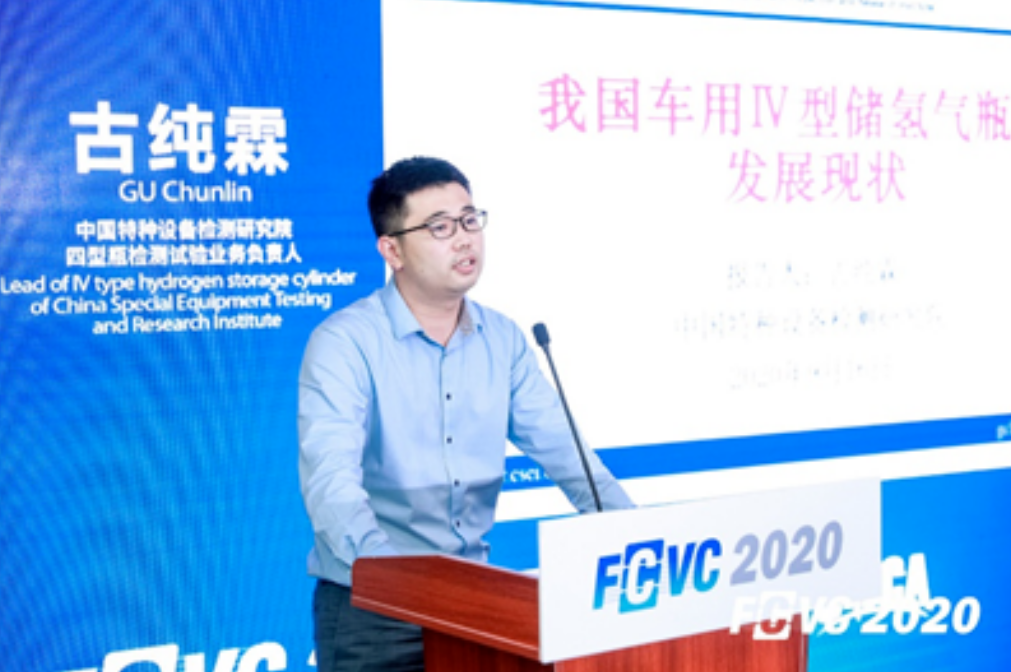
Gu Chunlin, Head of Type 4 Bottle Testing and Testing Business of China Special Equipment Testing Research Institute
Mr. Gu Chunlin's introduction is divided into three parts: the current situation of the development and development of four types of hydrogen storage cylinders for vehicles in China, the basic requirements put forward by the research institute to ensure the safety of gas cylinders, and the project of the research institute to evaluate and evaluate the safety performance of gas cylinders .
Discussion on technology of 70MPa four-type hydrogen storage cylinder

Mi Kuan, Chief Engineer of Sinoma Technology (Chengdu) Co., Ltd.
Mr. Mi Kuan shared the technology of the 70 MPa Type IV bottle. In his view, the liner material is the core, followed by the molding process of the liner, the performance of the liner material, including the process stability of the entire production process, the design of the bottle mouth, the composite layer material, special functions (impact resistance, fire resistance) ), valves and fittings for TPRD, cylinder certification and hydrogen storage systems.
The Industrialization Road of Type 4 Hydrogen Cylinder and Bioo's China Plan

Xu Feng, China New Energy Business Development Director, Bio Investment (China) Co., Ltd.
Mr. Xu Feng said that based on the development trend of Type 4 bottle and future hydrogen cylinders and the core competitiveness of PIO, PIO believes that Type 4 bottle is a solution for the future development of fuel cell vehicles. At the same time, he also put forward a point of view: the upgrade from the three-type bottle to the four-type bottle product, whether it is the potential to prolong the life or reduce the cost, will enhance the capability of China's fuel cell industry and the system.
From core material to device fuel cell evaluation system
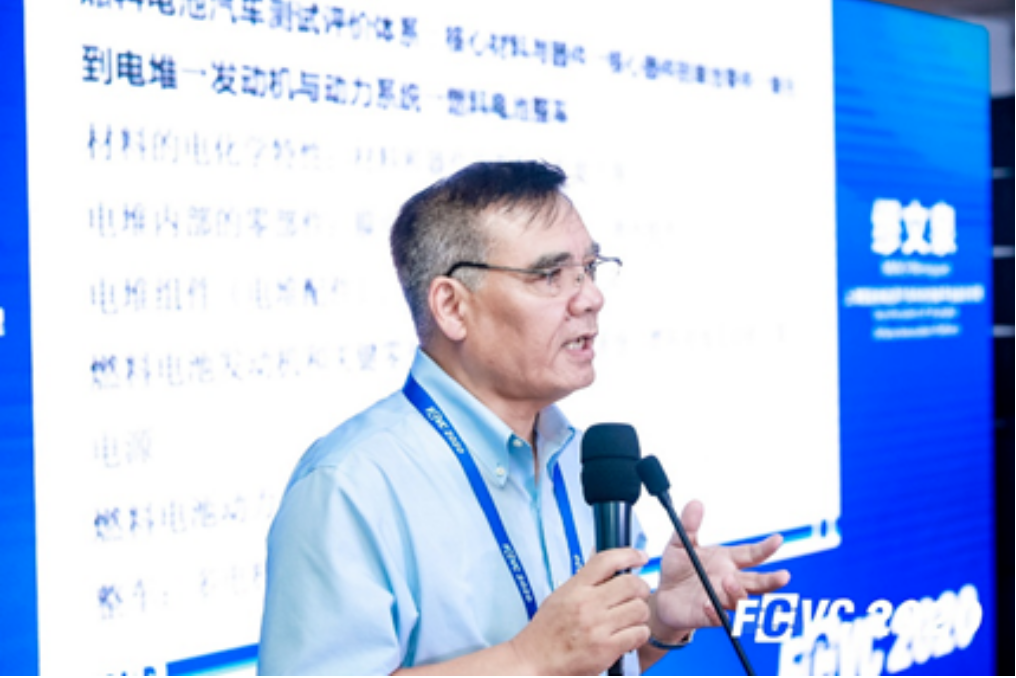
Miao Wenquan, Deputy General Manager of Shanghai Intelligent New Energy Vehicle Technology Innovation Platform
Mr. Miao Wenquan shared some ideas of the science and technology platform in the construction of the entire fuel cell evaluation system. He revealed that when making a fuel cell test and evaluation system, you can look at the technical amount of fuel cell test evaluation, including core materials and devices, core devices to battery parts, including units to stacks, and then engines and power systems. Down is the fuel cell vehicle.
Design and Application of Cooling Medium for Fuel Cell Stack
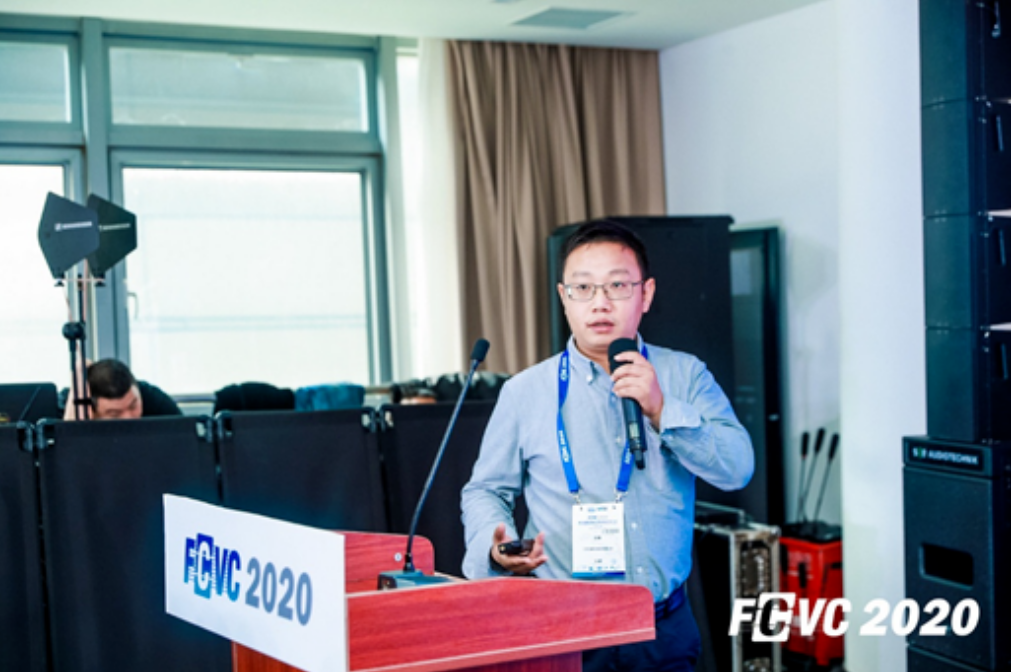
Liu Zhen, Senior R&D Engineer, Jiangsu Longpan Technology Co., Ltd.
Mr. Liu Zhen introduced that the cooling liquid products of Longpan Technology have an original polymer inhibitor and anti-corrosion system, which prolongs the service life of the catalyst. Longpan Technology and Dalian Institute of Chemical Technology have established related joint laboratories, and cooperated with domestic universities in the field of hydrogen storage bottles.
On the same day, a special speech with the theme of "Project Roadshow and Capital Matching" was also held in Sub-venue 4. The special speech was hosted by Chen Wei, General Manager of Asia Pacific Precious Metals Market Development of Anglo American Resources Trading (China) Co., Ltd. A total of 13 companies participated. The project roadshow and the strong support of capital will undoubtedly inject a new vitality into the development of the hydrogen energy industry.
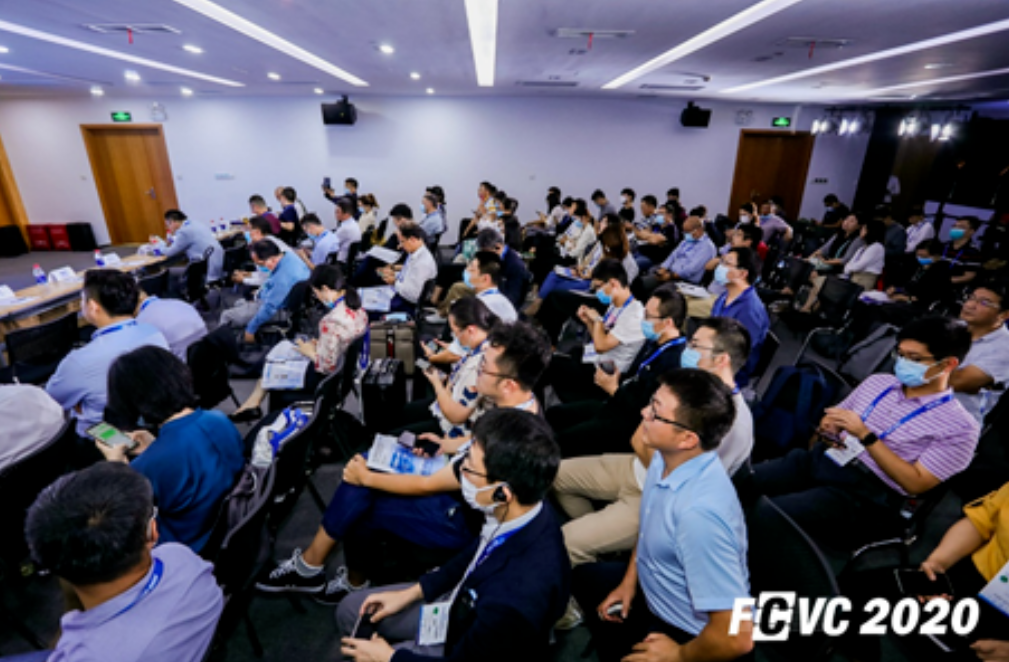
Branch venue 4 scene